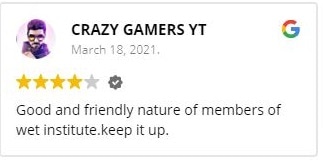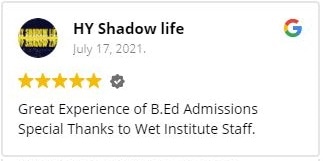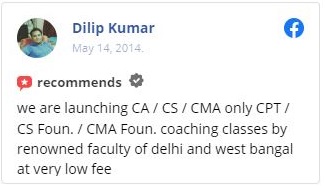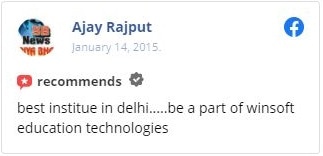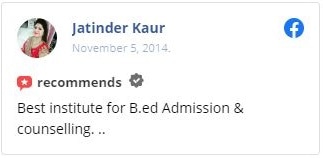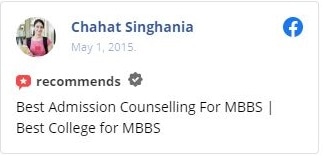D.Ed. (Diploma in Education) Admission from Best Top Universities and Colleges: Admission Process, Eligibility Criteria, Scope, Fees, Syllabus, Duration, and Career Opportunities
Diploma in Education
A Diploma in Education typically focuses on equipping individuals with the skills and knowledge necessary for a career in teaching or education. This program often covers a range of topics, including educational theory, curriculum development, classroom management, and pedagogical strategies.
Key Components:
- Educational Theory: Understanding foundational concepts in learning and teaching.
- Curriculum Development: Designing effective curricula to meet diverse learning needs.
- Classroom Management: Techniques for maintaining a positive learning environment.
- Assessment Strategies: Methods for evaluating student progress and learning outcomes.
- Practicum Experience: Hands-on teaching experience in real classroom settings.
Career Opportunities:
- Primary or secondary school teacher
- Educational coordinator
- Special education teacher
- Educational consultant
Benefits:
- Prepares you for various roles in education.
- Enhances understanding of student needs and learning styles.
- Can be a stepping stone to further studies in education, such as a Bachelor’s or Master’s degree.
D.Ed. Eligibility Criteria
The eligibility criteria for a Diploma in Education (D.Ed.) can vary by institution, but here are some common requirements:
General Eligibility Criteria:
Educational Qualification:
- Typically, a candidate should have completed their higher secondary education (12th grade) or an equivalent qualification.
- Some institutions may also accept candidates with a bachelor’s degree.
Minimum Marks:
- Many colleges require a minimum percentage in the qualifying examination (often around 50% to 60%).
Age Limit:
- Some institutions may have an age limit, while others may not.
Entrance Exam:
- Certain institutions may require candidates to pass an entrance exam or interview as part of the selection process.
Other Requirements:
- Some programs may ask for letters of recommendation or a statement of purpose.
- Some programs may ask for letters of recommendation or a statement of purpose.
Additional Considerations:
- It’s advisable to check specific institutions for their unique requirements.
- Some regions may have specific regulatory requirements for teacher training programs.
D.Ed. Admission Process
The admission process for a Diploma in Education (D.Ed.) typically involves several steps. Here’s a general outline of the process:
1. Research Institutions
- Identify institutions offering the D.Ed. program.
- Review their eligibility criteria, curriculum, and faculty.
2. Application Form
- Fill out the application form for the selected institution(s).
- This can often be done online through the institution’s website.
3. Documents Submission
- Prepare and submit required documents, which may include:
- Educational certificates (e.g., high school transcripts)
- Proof of identity (e.g., Aadhar card, passport)
- Passport-sized photographs
- Any entrance exam scorecards, if applicable
4. Entrance Exam (if applicable)
- Some institutions may require you to take an entrance exam.
- Prepare for the exam as per the syllabus provided by the institution.
5. Interview (if applicable)
- Certain programs may include a personal interview as part of the selection process.
- Be prepared to discuss your motivation for pursuing the D.Ed. and your interest in teaching.
6. Merit List
- After the entrance exam and interviews, institutions usually prepare a merit list based on scores and qualifications.
7. Counseling/Admission Offer
- Candidates on the merit list will be called for counseling or notified of their admission.
- You may need to confirm your acceptance and pay any required fees.
8. Enrollment
- Complete the enrollment process, which may involve:
- Paying the tuition fee
- Submitting any additional documentation
- Attending an orientation session
9. Start Classes
- Begin your classes as per the academic calendar of the institution.
Tips:
- Always check the specific admission guidelines for each institution, as processes can vary.
- Keep an eye on application deadlines and required documents to ensure a smooth application process.
D.Ed Curriculum
D.Ed is a 2 year diploma programme. Here Student learns a wide variety of subjects, Child Psychology, Education Psychology, Guidance and counselling, and many more. These subjects are important so that student can be prepared for working with Children and manage the teaching culture in School.
Below mentioned are few subjects which D.Ed student studies during two year of tenure.
Junior Basic Training (JBT) Syllabus
Syllabus of Junior Basic Training as prescribed by various Universities and Colleges.
Other than the Theory and Practical Examination, D.Ed curriculum also includes an Internship program of four months in a school.
- Education in Emerging Indian
- Understanding the child and the Learning Process (Educational Psychology)
- Educational Management at Elementary Level
- Educational Technology
- Education for Peace, Value, Environment and Human Rights
- Teaching of Hindi
- Teaching of Social Studies
- Teaching of Environmental Science
- Teaching of Mathematics
- Teaching of English
- Population Education Health
- Physical Education Yoga
- Sessional Work (PET/Yoga)
- Art Education & work Experience (Theory & Practical)
- Teaching of Mother Tongue (Hindi)
- Teaching of English Language
- Teaching of Mathematics
- Teaching of Environmental Studies (Sciences)
- Teaching of Environmental Studies (Social-Studies)
- Teaching of Work Experience
- Teaching of Art Education
- Teaching of Health and Physical Education
This includes an internship program of 45 days to 4 month depending on the Board or University, you are enrolled in.
It is a mandatory Internship to attend for a D.Ed Student. It helps the candidate with live students and classroom environment. Students learns how to handle the class and enhances his/her personality as a Teacher.
- Co-curricular Activities
- Community Work
- Games and Sports
D.Ed Scope or Future Advantages
A Diploma in Education (D.Ed.) can open various avenues and offer numerous advantages for your future in the field of education. Here’s a breakdown of its scope and benefits:
1. Career Opportunities
- Teaching Positions: D.Ed. qualifies you to teach in primary and secondary schools.
- Special Education: You can work with students with disabilities or learning difficulties.
- Educational Administration: Opportunities in school management and administration roles.
- Curriculum Development: Involvement in designing educational programs and materials.
2. Skill Development
- Pedagogical Skills: Gain effective teaching strategies and classroom management techniques.
- Communication Skills: Enhance your ability to communicate concepts clearly to students.
- Critical Thinking: Develop problem-solving skills that are crucial in educational settings.
3. Further Studies
- Higher Education: A D.Ed. can serve as a stepping stone to pursue a Bachelor’s or Master’s degree in Education, which can lead to advanced career options.
- Specialized Certifications: Opportunities to specialize in areas like educational technology, counseling, or curriculum design.
4. Professional Development
- Workshops and Seminars: Many institutions offer ongoing professional development opportunities for D.Ed. graduates.
- Networking: Connect with professionals in the field, which can lead to job opportunities and collaborations.
5. Job Security and Demand
- The demand for qualified teachers remains high in many regions, ensuring job security.
- Opportunities exist in both public and private educational institutions.
6. Impact on Society
- Play a vital role in shaping the future of students and the community.
- Contribute to educational reforms and policies that enhance learning outcomes.
7. Diverse Work Environments
- Opportunities in various settings, such as schools, educational NGOs, tutoring centers, and even corporate training programs.

